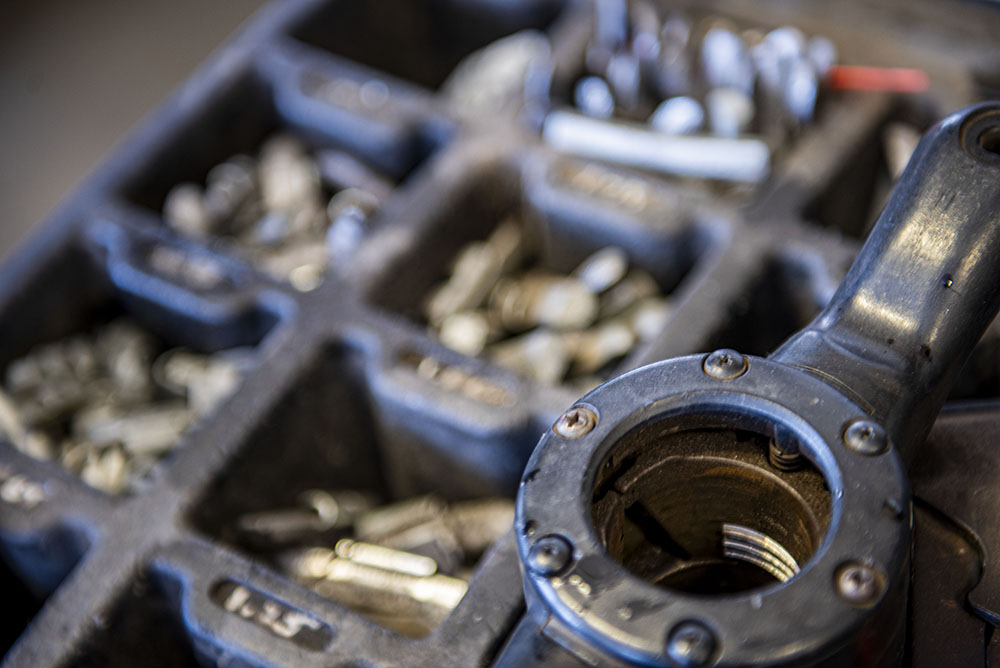In the realm of transportation, few professions are as crucial as that of the auto mechanic. These skilled technicians are the unsung heroes behind the scenes, ensuring that our cars, trucks, and other vehicles remain operational and safe on the roads. From routine maintenance to complex repairs, auto mechanics play a pivotal role in keeping vehicles running smoothly and reliably.
The Duties of an Auto Mechanic
Auto mechanics are trained professionals who specialize in diagnosing, repairing, and maintaining various types of vehicles. Their daily responsibilities often include:
Diagnosis and Inspection: One of the primary tasks of an auto mechanic is to diagnose issues with vehicles. This involves using diagnostic tools, conducting visual inspections, and relying on their knowledge and experience to identify problems accurately.
Routine Maintenance: Preventive maintenance is key to extending the lifespan of a vehicle. Auto mechanics perform tasks such as oil changes, tire rotations, fluid checks, and filter replacements to keep vehicles in optimal condition.
Repair Work: When a vehicle breaks down or experiences mechanical issues, auto mechanics step in to perform repairs. This can range from fixing brakes and transmissions to addressing electrical or engine problems.
Technical Expertise: Modern vehicles are equipped with advanced technology and computer systems. Auto mechanics must stay updated on these advancements to effectively diagnose and repair issues.
Customer Interaction: Auto mechanics often communicate directly with vehicle owners. They explain repair options, provide cost estimates, and offer advice on maintaining vehicle performance and safety.
Education and Training
Becoming an auto mechanic requires a blend of formal education and hands-on experience:
Education: Many auto mechanics begin their careers by completing a vocational or technical training program. These programs cover topics such as automotive technology, engine repair, electrical systems, and diagnostics.
Certification: Some mechanics choose to pursue certification from organizations like the National Institute for Automotive Service Excellence (ASE). Certification demonstrates competence and can enhance job prospects.
Apprenticeships: Hands-on experience is crucial for aspiring auto mechanics. Many enter the field through apprenticeship programs, where they work under experienced technicians to gain practical skills.
Specializations in Auto Mechanics
Auto mechanics can specialize in various areas based on their interests and expertise:
Brake and Suspension Specialists: These mechanics focus on maintaining and repairing brake systems, steering, and suspension components.
Engine Technicians: Engine specialists specialize in diagnosing and repairing issues related to engines, including fuel systems, cooling systems, and emissions controls.
Electrical Systems Experts: With the increasing complexity of vehicle electronics, these mechanics specialize in diagnosing and repairing electrical and electronic systems.
Transmission Specialists: Transmission mechanics specialize in diagnosing and repairing issues with automatic or manual transmissions, ensuring smooth gear shifts and optimal performance.
Challenges Faced by Auto Mechanics
While rewarding, a career as an auto mechanic comes with its own set of challenges:
Physical Demands: The job often requires standing for long periods, working in tight spaces, and lifting heavy equipment.
Technological Advancements: Keeping up with rapid advancements in automotive technology requires ongoing training and education.
Diagnostic Complexity: Modern vehicles rely heavily on computerized systems, making diagnosis more complex and requiring specialized tools and knowledge.
Customer Expectations: Interacting with customers who may not fully understand automotive issues can be challenging. Effective communication skills are essential.
The Future of Auto Mechanics
As vehicles become more advanced and environmentally friendly, the role of auto mechanics continues to evolve:
Electric and Hybrid Vehicles: Mechanics are increasingly trained to work on electric and hybrid vehicles, which require specialized knowledge of battery systems and electric motors.
Diagnostic Tools: Advanced diagnostic tools and software assist mechanics in pinpointing issues quickly and accurately.
Continued Education: Ongoing education is crucial for auto mechanics to stay updated on industry trends, new technologies, and environmental regulations.
Conclusion
In conclusion, auto mechanic are indispensable professionals in the automotive industry. They ensure that vehicles remain safe, reliable, and efficient through their expertise in diagnosis, maintenance, and repair. As technology advances and vehicles become more complex, the demand for skilled auto mechanics continues to grow. Whether performing routine maintenance or tackling complex repairs, these dedicated professionals play a vital role in keeping the world moving.
From keeping families safe on road trips to ensuring businesses can deliver goods on time, auto mechanics are at the heart of transportation reliability. Their commitment to excellence and their technical skills make them essential partners for vehicle owners and drivers worldwide.
In essence, the next time you drive your car or hear its engine purring, remember the skilled hands and sharp minds of auto mechanics who keep it running smoothly, day in and day out.

